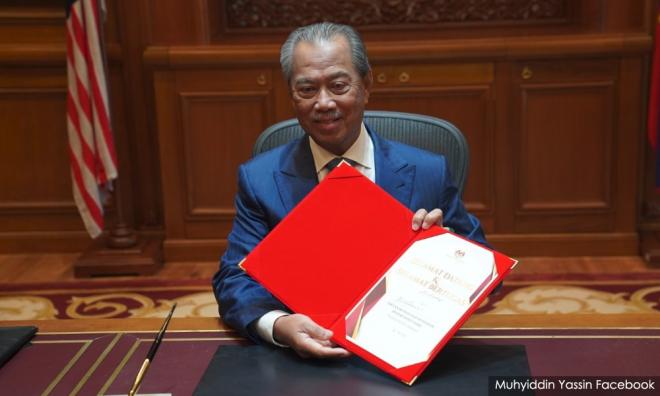
The reign of the world’s oldest prime minister came to a surprising end Sunday when Malaysia swore in a new leader following a week of political turmoil.
What began as infighting over succession and rumoured mutiny ended with conservative politician Muhyiddin Yassin named prime minister. “I feel betrayed,” ousted leader, 94-year-old Mahathir Mohamad, said.
Mahathir in his statement has accused the new "backdoor government" of partnering with kleptocrats embroiled in one of the world’s greatest embezzlement scandals. The transition dislodges Malaysia from the reform trajectory set in motion after a stunning election upset in 2018.
Twenty-two months ago, Pakatan Harapan won the GE14 and given the mandate to rule the country for the next five years, creating history as the first party to replace BN which has ruled the country since its independence.
Mahathir allied with opposition figures he had once persecuted in order to unseat his own protégé who was accused of overseeing the looting of billions from state investment fund 1MDB.
But the coalition that finally managed to topple Umno finally collapsed last week, pitching the Southeast Asian country into chaos.
When Muhyiddin who is known as a conservative Muslim, first heard he was picked for the premiership, he dropped to the floor and prayed. A video capturing his piety circulated on social media.
The move didn’t surprise observers who point out that Muhyiddin, who once said he is “Malay first,” Malaysian second, created a coalition invested in the notion of Malay-Muslim supremacy.
After the 2018 election coup, the administration that took over was unprecedented in its diversity, with ethnic Chinese, Tamil and Sikhs in the cabinet. More than 40 percent of the ministers were non-Malays, compared with about 20 percent under the kleptocratic regime. But such an inclusive, multi-ethnic government exacerbated many Malays’ fears of losing their preferential treatment.
In a blink of eyes, the power changed hands from the most multi-ethnic, liberal-minded government Malaysia has known, to a ruling bloc that panders to the Malay-Muslim majority.
Now the new government is dominated by almost 100 percent ethnic Malays only. Muhyiddin government cannot blame the minorities, especially the Chinese, for whatever problems they will face the later stage.
The return to power of the parties that lost the last election may mean a renewed focus on the country’s decades-old positive discrimination policy for majority Malays, who enjoyed preferential access to everything from public financing to 30 percent quota for equity holdings in businesses.
Unlike Mahathir’s multi-ethnic government, the new administration may also be willing to put more Malays back into key positions, and veer towards religious conservatism in the largely Muslim country. - Mkini



No comments:
Post a Comment
Note: Only a member of this blog may post a comment.